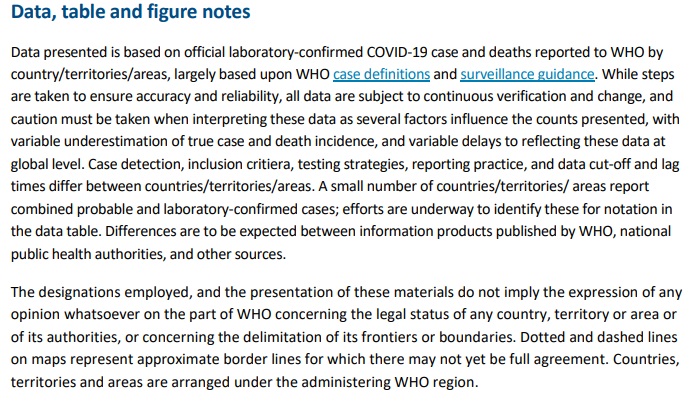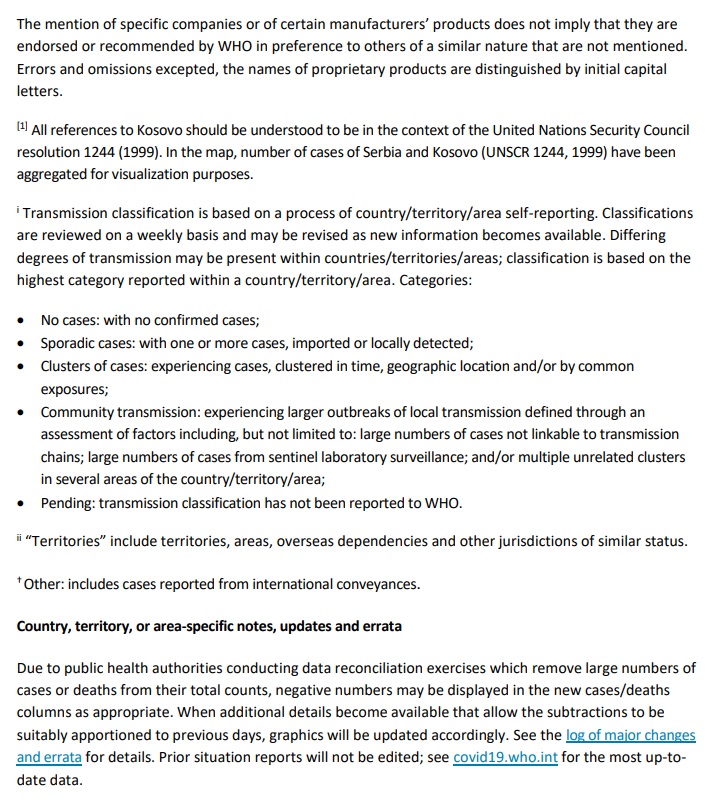
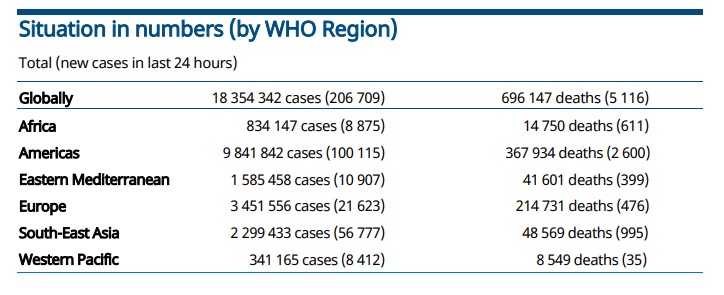
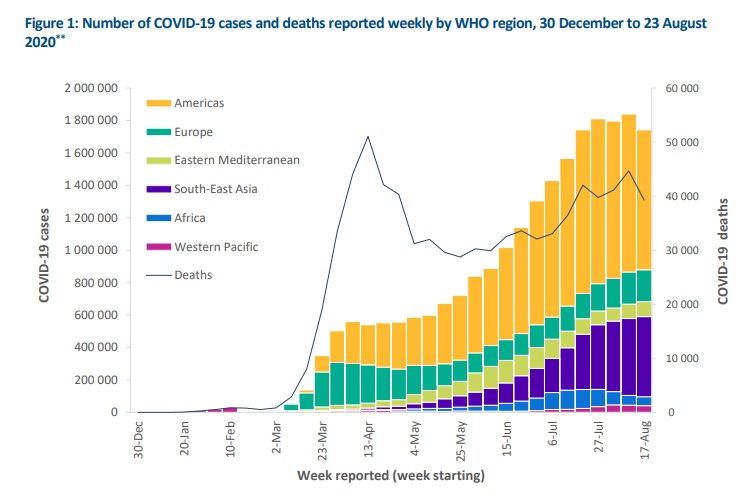
With the exception of the South-East Asia and Eastern Mediterranean regions, a decrease in the weekly case incidence was reported across WHO regions in the last seven days (Table 1, Figure 2). Although the WHO Region of the Americas remains the most affected, accounting for 50% of newly reported cases and 62% of deaths, the region had the largest decrease compared to the previous week. The South-East Asia Region, which is the second most active region, continues to report an increase accounting for 28% and 15% of newly reported cases and deaths respectively. In the European Region, the number of cases reported has consistently increased over the last three weeks, however, only a slight decrease (1%) was reported in the most recent week, and the number of deaths have continued to decrease across the region. In the Eastern Mediterrenean Region, the number of reported cases increased by 4% compared to the previous week, however, the number of reported deaths have consistently decreased over the last six weeks. Likewise, the African and Western Pacific regions reported overall decreases in case activity over the past week.
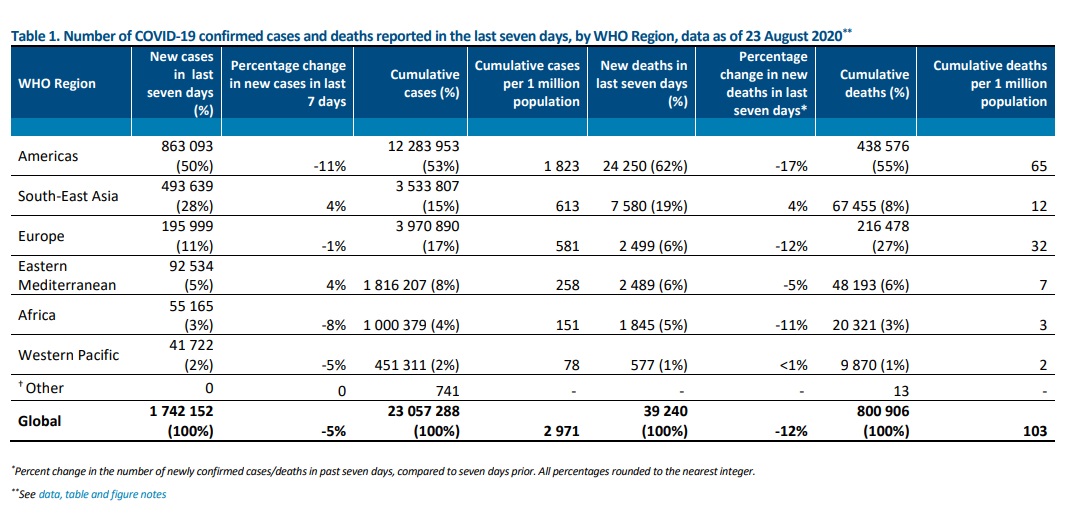
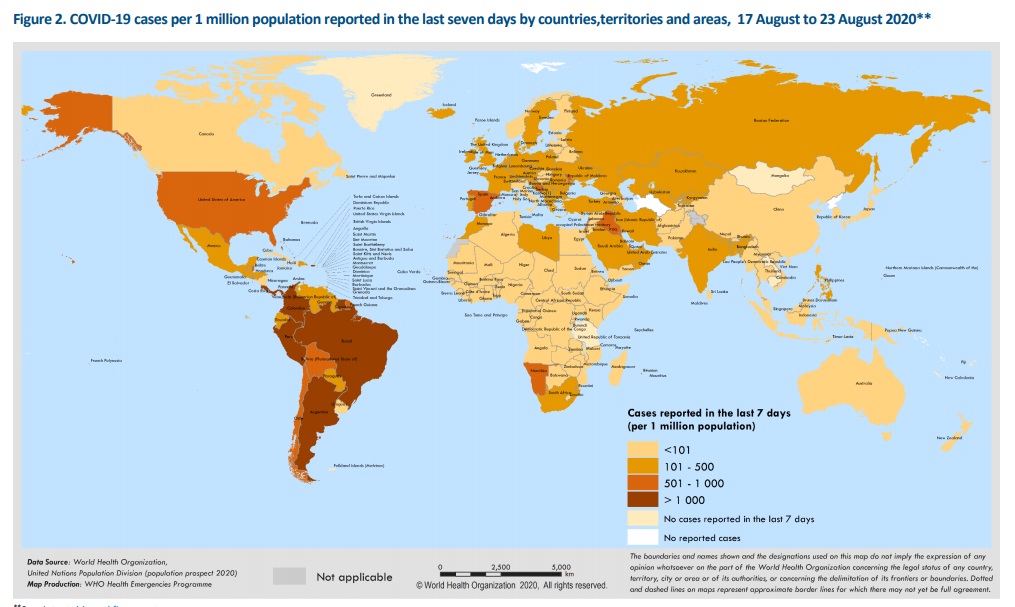
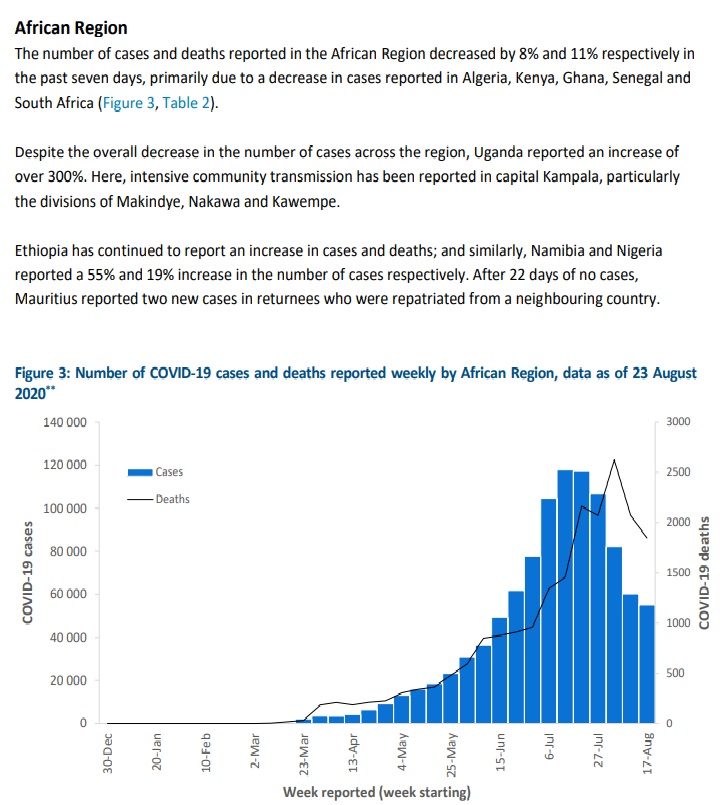




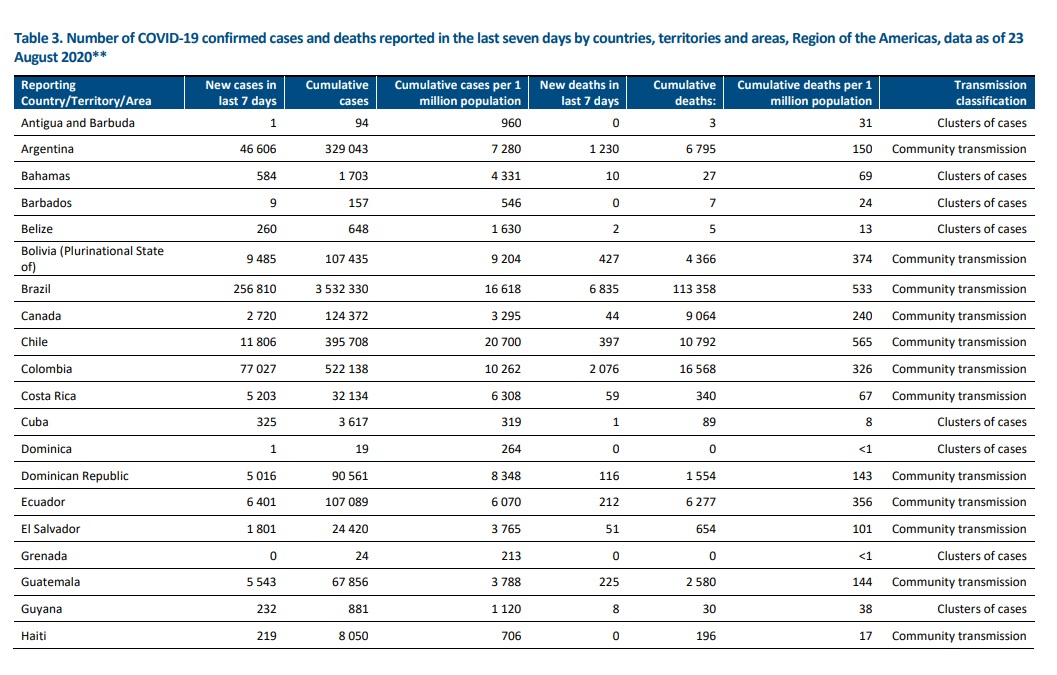
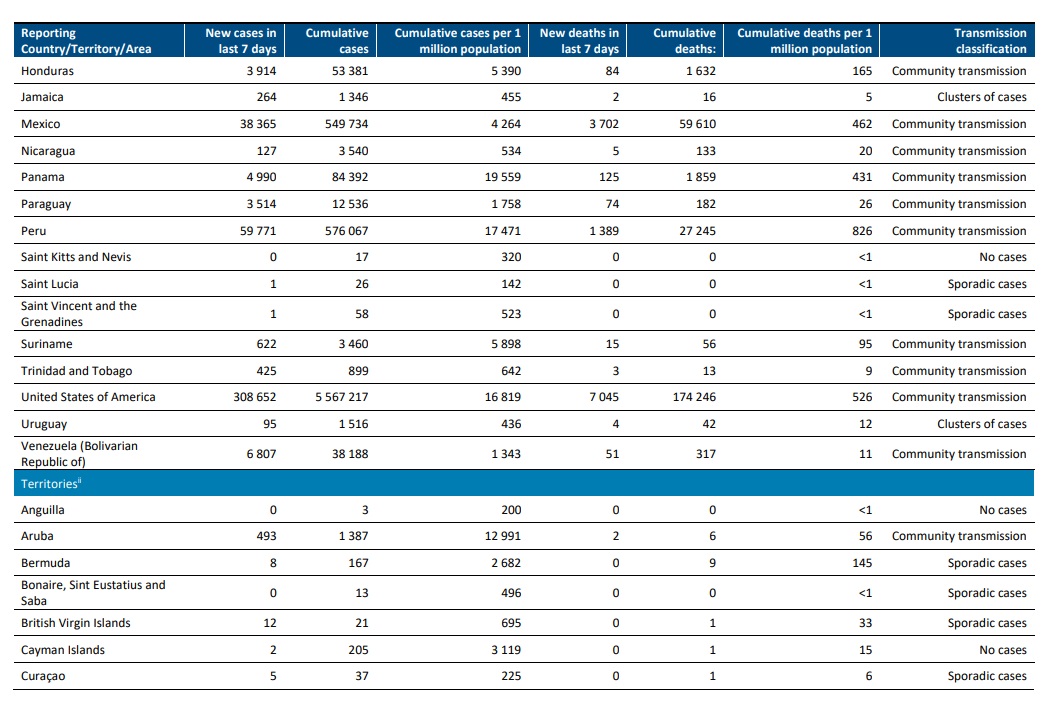
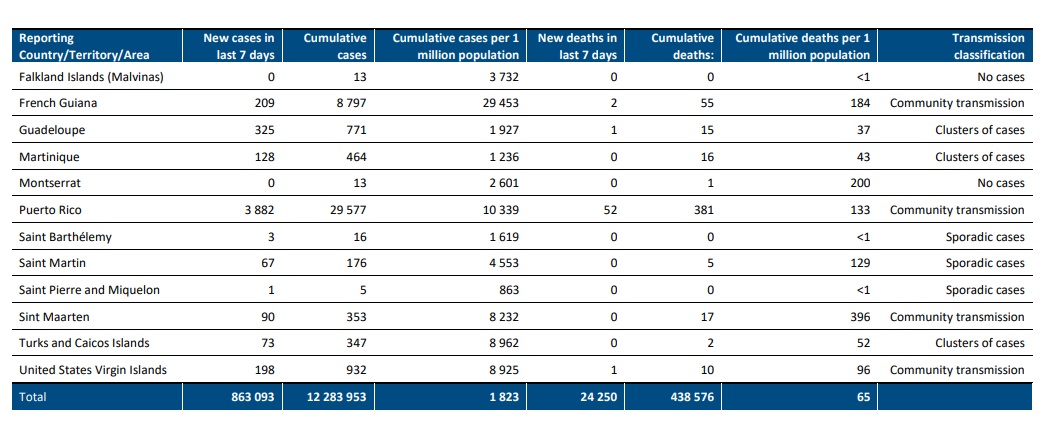
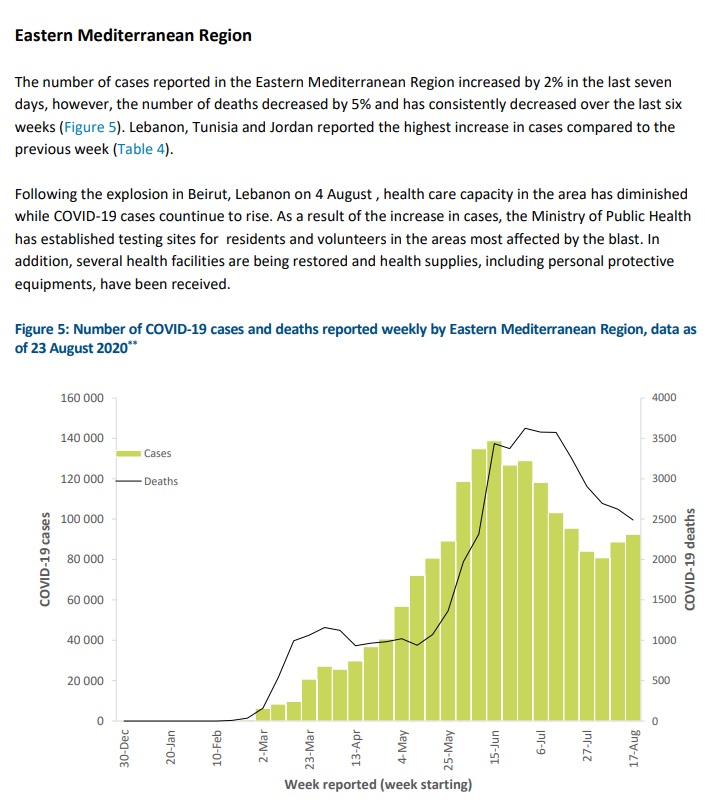
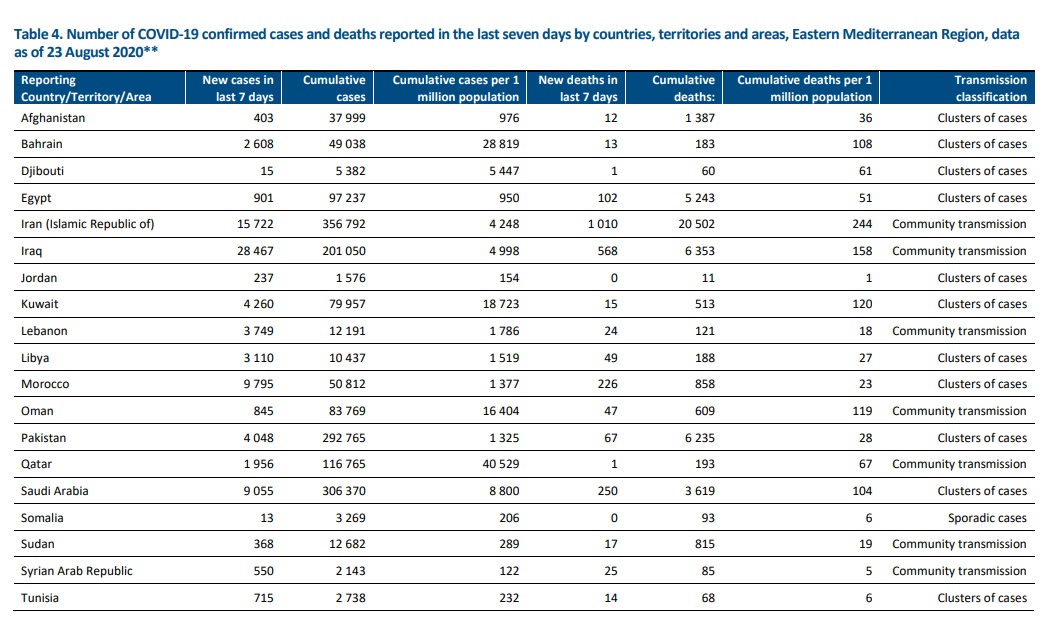


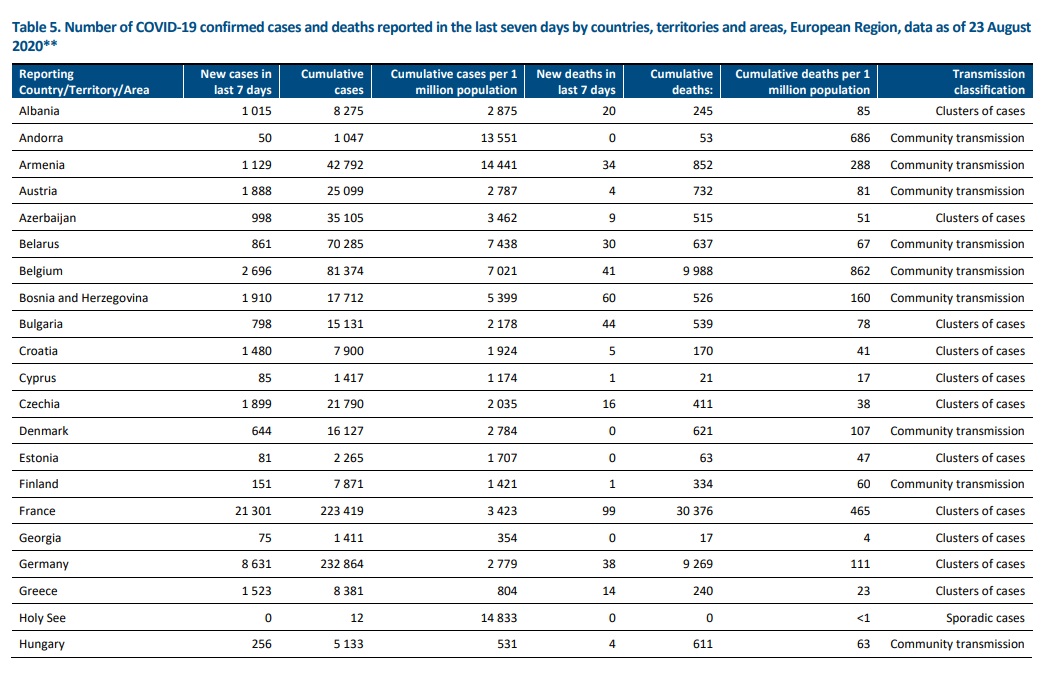

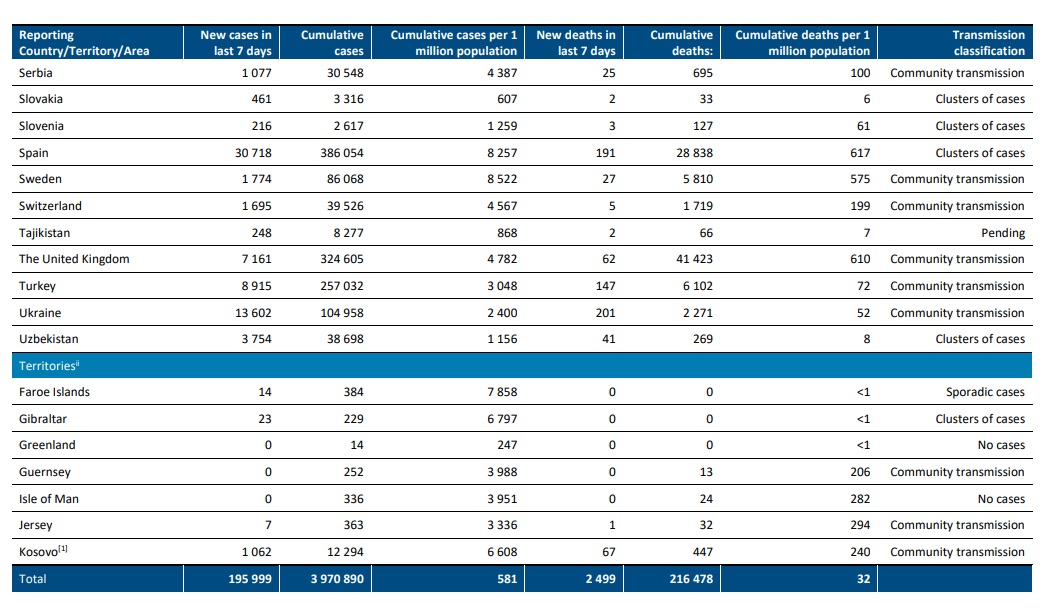
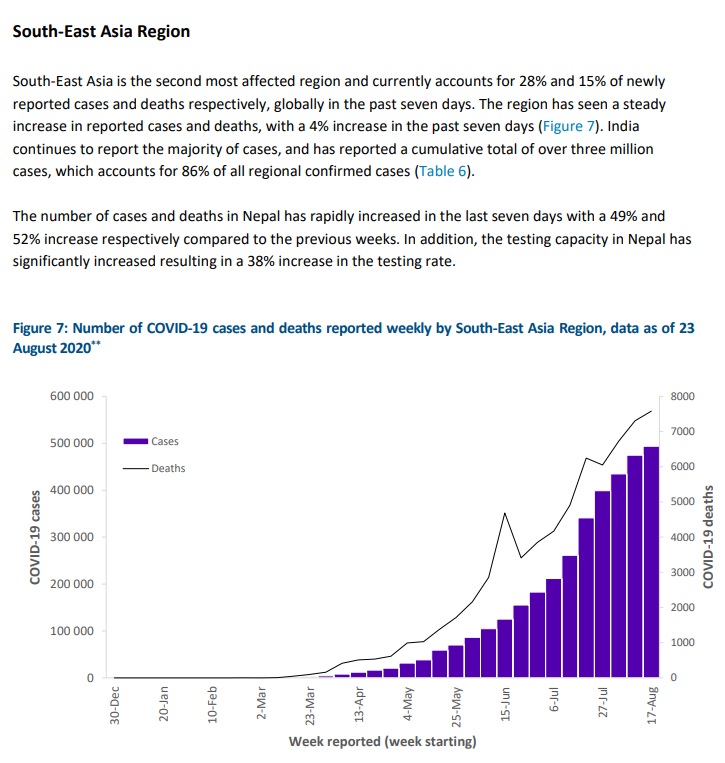
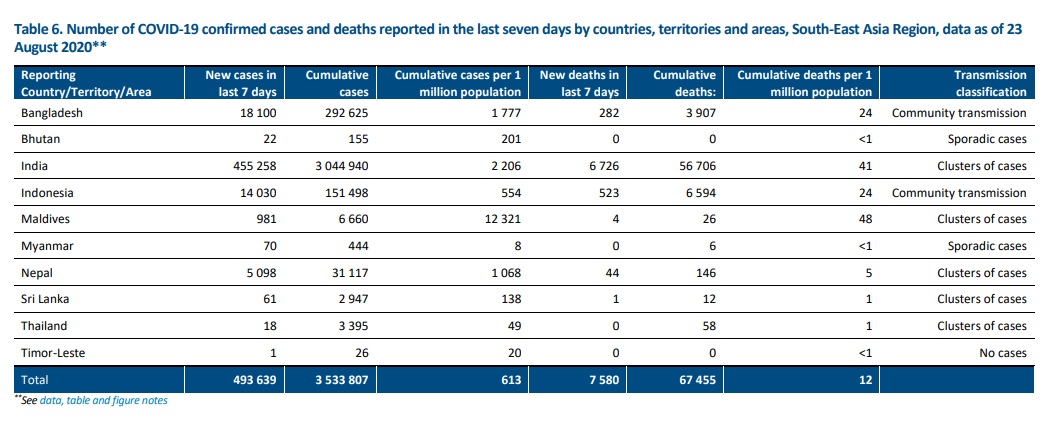
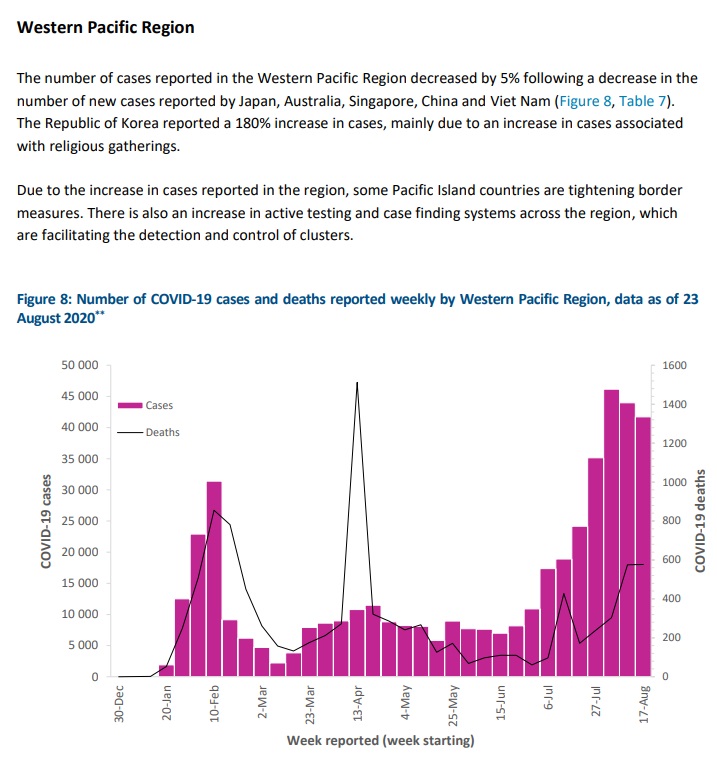
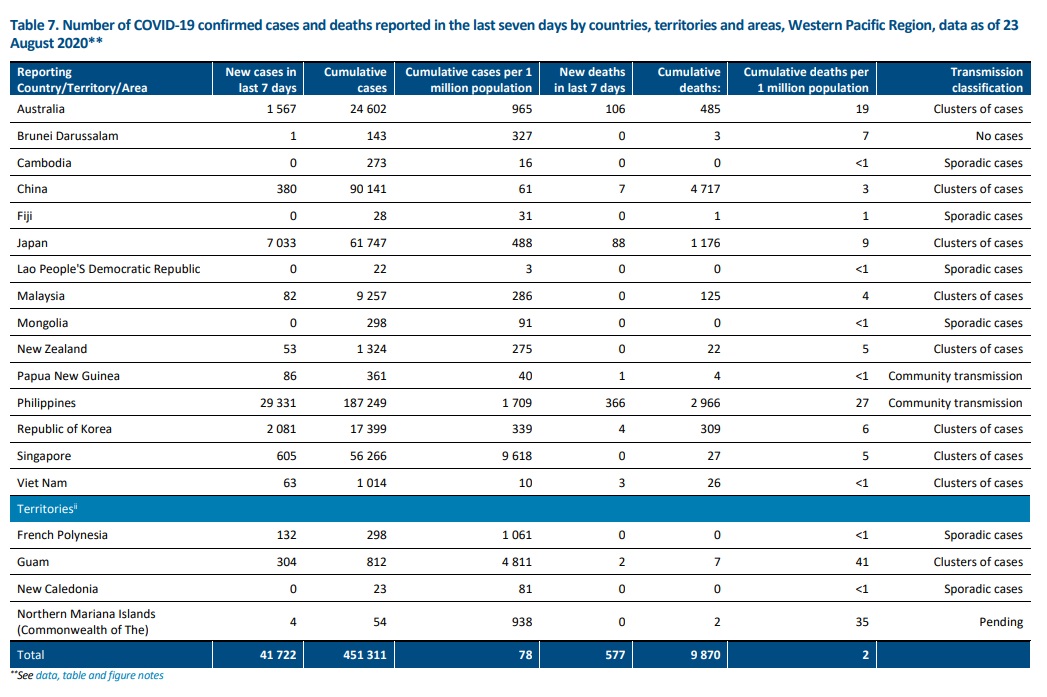
Key weekly updates
During the 20 August Member State Briefing, WHO Director-General Dr Tedros highlighted that “the
fastest way to end the pandemic and reopen economies is to start by protecting the highest risk
populations everywhere, rather than the entire populations of just some countries.” He encouraged
all countries to join the COVAX Global Vaccines Facility, part of the ACT Accelerator – a critical
mechanism for joint procurement and pooling risk across multiple vaccines. Nine vaccine candidates
in the COVAX portfolio are currently going through Phase II or Phase III clinical trials. WHO is
proposing to allocate vaccines in two phases. Speaking on 24 August, Dr Tedros further explained
that “the Facility is the critical mechanism for joint procurement and pooling risk across multiple
vaccines so that whatever vaccine is proven to be safe and effective – all countries within the Facility
will be able to access them. Most importantly, it is the mechanism to enable a globally coordinated
rollout. This is in the interests of all countries, even those that have invested with individual
manufacturers independently.” WHO issued terms of agreement for all countries to confirm how
they prefer to join the mechanism, with a deadline of 31 August.
• WHO has published updated guidance on quarantine measures for individuals who are identified as
contacts of a case of COVID-19. This includes information on the implementation of quarantine, as
well as on ventilation and on the care of children in quarantine.
• WHO has published new guidance on the use of masks for children which serves as an annex to
previously published guidance on use of masksin the context of COVID-19. The Q&A on children and
the use of masks has recently been updated that provides answers to questions the public may have.
• Speaking at a press conference held jointly with UNICEF, Dr Matshidiso Moeti, WHO Regional
Director for Africa said “Schools have paved the way to success for many Africans. They also provide
a safe haven for many children in challenging circumstances to develop and thrive. We must not be
blind-sided by our efforts to contain COVID-19 and end up with a lost generation. Just as countries
are opening businesses safely, we can reopen schools. This decision must be guided by a thorough
risk analysis to ensure the safety of children, teachers and parents and with key measures like
physical distancing put in place.” In a WHO survey of 39 countries in sub-Saharan Africa, only six
schools were found to be fully open. The impact of extended disruption to education as a result of
school closure is significant, and inlcudes poor nutrition, stress, increased exposure to violence and
exploitation, childhood pregnancies, and diminished educational progress. WHO and UNICEF have
urged governments in Africa to promote the safe reopening of schools while taking measures to limit
the spread of the virus.
• Globally, risks of COVID-19 resurgence remain in all countries that have managed to suppress
transmission. Dr Hans Henri P. Kluge, WHO Regional Director for Europe, highlighted this during a
statement to the press, indicating that as summer turns to autumn in the northern hemisphere, we
must make sure that we adopt the right public health measures to enable the safe return to school,
manage the approaching influenza season, sustain our economies, and address the increased health
risks to older people at this time of year.
• The COVID-19 pandemic has negatively affected mental health and raised concerns of an increase in
domestic violence in the Region of the Americas. WHO Regional-Director Carissa F. Etienne has
counseled that countries in the Americas should expand and invest in mental health services. WHO
has produced several publications on mental health and COVID-19, including advice for the public, a
children’s book, and other guidance.
• Recent studies that show an increased risk among pregnant women of presenting with severe forms
of COVID-19. In light of this, the WHO Regional Office for the Americas is encouraging countries to
step up efforts to ensure access to prenatal care services for pregnant women.
• WHO and the Jack Ma Foundation have donated COVID-19 essential medical supplies to 20
Caribbean countries. The supplies, which landed in Barbados, will be delivered through a new
integrated regional logistics hub, supported by a donation by the Government of Canada.
• The COVID-19 pandemic has affected older people disproportionately, especially those living in longterm care facilities. Some countries indicate that more than 40% of COVID-19 related deaths have
been linked to long-term care facilities. The WHO Regional Office for the Western Pacific has
produced a communication toolkit for long-term care facilitiesto support Infection Prevention and
Control. This compliments a WHO policy brief released last month on preventing and managing
COVID-19 across long-term care services.
